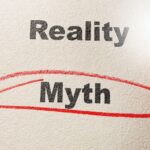The internet has been a powerful tool for African Americans, and it is important to understand why and how the African American community has taken advantage of it. This article will explore the history and origins of the internet in black communities, examining some of the key individuals who helped make it possible.
We will also provide an overview of how African Americans have used the internet to promote their interests and passions. Finally, we will discuss the obstacles many black people face using technology and the importance of addressing these disparities to ensure equal access to this powerful tool. By exploring this history and discussing these issues, we hope to provide readers with a better understanding of how African Americans are using the internet today.
Pre-Internet Black Communities
Before the internet, Black communities developed an extensive network of communications, services, and networking. This included zines, other forms of grassroots media, and other creative outlets and services. These networks provided an invaluable source of information, resources, and networks of support for Black people, which would later shape how the internet was developed.
The Rise of Black Technology Organizations
In the 1990s, African Americans began creating a presence in cyberspace. Through the efforts of African American technology organisations like Mergence, Association of Black Software Professionals (ABSP), and The Lotus Development Corporation Black Emancipation Day Celebration Conference, Blacks began to leverage their technology resources to meet their own economic and social needs. In addition, these groups connected hundreds of Black technology entrepreneurs with resources providing access to venture capital and business information.
The importance of the Internet for black communities was exemplified through projects such as “The Make It Happen Project, ” funded by Mark Cuban’s Minority Technology Development Program. The Make It Happen project provided high school students with experiences promoting exposure to computer networking skills, website creation, and design practices. This project demonstrated how the Internet can serve as an interactive forum for communication and a tool for economic advancement.

Organisations such as the National Federation of Black Women in Technology (a non-profit organisation dedicated to inspiring African American women interested in pursuing careers in the IT sector) helped increase awareness and visibility of black technologists on popular sites like Geek 2 Geek (a popular online matchmaking site at the time specifically catering to tech-savvy users). Additionally, companies such as GlobalHue (an international marketing agency targeting African American audiences) entered into partnerships with Ebony Magazine Online which helped further establish web dialog on issues about race and technology within both symbolic (i.e media dialogue) and practical contexts (i.e marketing campaigns using multi-platform digital strategies).
The Role of the Black Press
The black press has played an important role in the African American community for more than two centuries, advocating for civil rights, helping to shape African American culture, and providing a platform for black writers to express their views.
In the late 1950s, when television was increasingly becoming the primary source of obtainable news and entertainment in middle-class homes across America, many members of the Black Press still focused on those who weren’t being represented in major network programming.
With its more inclusive approach to reporting on current events and its diverse content – from politics to popular culture – it began filling a much-needed gap across the country. Long before personal computers were available in homes or Google had transformed how people interact with each other and consume information, members of African American communities used print media as a platform to exchange ideas and discuss social issues.
The Black Press so interacted with its readers that it integrated itself into their lives beyond simply informing them. It was made up of correspondents who shared a common purpose: To provide equal representation of black people in all aspects of society, including education and business opportunities. This included hiring correspondents from the South to cover historic events such as Emmett Till’s murder trial in Sumner, Mississippi or the Brownsville Riot by New York City policemen against African Americans in Brooklyn 1906. Unfortunately, these stories would often be picked up by Northern newspapers that didn’t have access or weren’t willing to send their respective correspondents.

In addition to providing coverage for important human rights events at home such as landmark court cases establishing equality like Brown V Board of Education (1954), some publications like The Chicago Defender also shared news about global issues impacting black communities overseas; accounts about poverty and oppression not often reported by major newspapers. Again, the objective is to use public opinion through published literature as a vehicle for positive change.
How Black communities shaped the internet
The history of the internet could not be told without recognizing the integral role Black communities played in its development. It is well-known that a disproportionate amount of Black Americans don’t have access to the internet compared to their white counterparts. Yet, despite this digital divide, Black communities have had a major impact on shaping the history of the internet.
From grassroots efforts to big data policies, Black communities have been at the forefront of internet development since the start.
The Role of African American Scientists and Engineers
African American scientists and engineers have played a critical role in the development of the internet. From its precursor networks and legendary pioneers such as Dorothy Ogle, Mark Dean, and Ben Houston, African American minds have been responsible for many significant technological advancements and communication advancements.
- In 1982, more than a decade before the internet became available to the public, Ogle was part of an ARPANET (precursor to today’s Internet) team from NASA’s Jet Propulsion Laboratory which gave her access to what would become key elements of modern technology like email and text messaging.
- In 1983, Mark Dean joined IBM where he developed several innovations that paved the way for modern computing including the introduction of color PC monitors and devices called “microchannel architecture” which focused on allowing computers to run multiple programs at once.
- In 1996, Ben Houston helped launch BlackPlanet.com, one of the earliest online social networking sites geared towards African Americans.

These contributions were just a few examples in which African Americans helped create an environment that could eventually nurture new inventions such as Google or Facebook. In addition to these pioneering individuals, countless other African American scientists directly impacted how we think about technology today by creating tools not only used by everyday people but specifically designed for their communities–offering important resources to traditionally underserved populations but providing a platform on which those same communities could organise against social injustice.
The Creation of African American-Focused Online Communities
The advent of the Internet has allowed African Americans to create their own online spaces tailored to their unique needs and interests. The internet has provided African Americans with an unprecedented platform to share stories, ideas and culture in ways that escape the limited confines of traditional media outlets. These digital communities allow members of the African American community to discuss new issues and perspectives, showcase unique talents, debate ideas, and ultimately maintain a sense of shared identity.
In general, these cyber-communities bring attention to African American history, culture and identity while providing resources that may benefit health and economic development. For example, there are virtual communities designed to:
- provide housing advice for young adults;
- those focused on providing educational opportunities for minority students;
- sites for political news coverage;
- networking hubs where people can connect interpersonally or professionally;
- forums devoted to sharing career advice or exploration tips;
- or online literary magazines dedicated solely to showcasing works from poets of colour.
In addition, social networking sites such as Facebook have also enabled African Americans from across the country or even from different parts of the world to interact with each other in real time via instant messaging apps or video chats.
Ultimately, these vibrant digital communities have enabled increasing opportunities for African Americans by allowing them access resources which may otherwise be inaccessible through more traditional outlets. Moreover, these vibrant websites not only serve as cultural spaces but also aid in economic development and knowledge sharing within the black community while challenging mainstream stereotypes about race in technology by fostering an inclusive atmosphere open to all voices who wish to engage with one another respectfully within their designated setting.
tags = built online communities, software and culture, black clture social platform, qa charlton software black theverge, charlton mcilwain black software theverge, qa charlton black black theverge, charlton mcilwain black black theverge, qa charlton mcilwain software uspatel theverge, qa charlton software uspatel theverge, charlton mcilwain black black uspatel theverge, qa charlton black software uspatel theverge, charlton black software black uspatel theverge, charlton mcilwain software black uspatel theverge
























































































